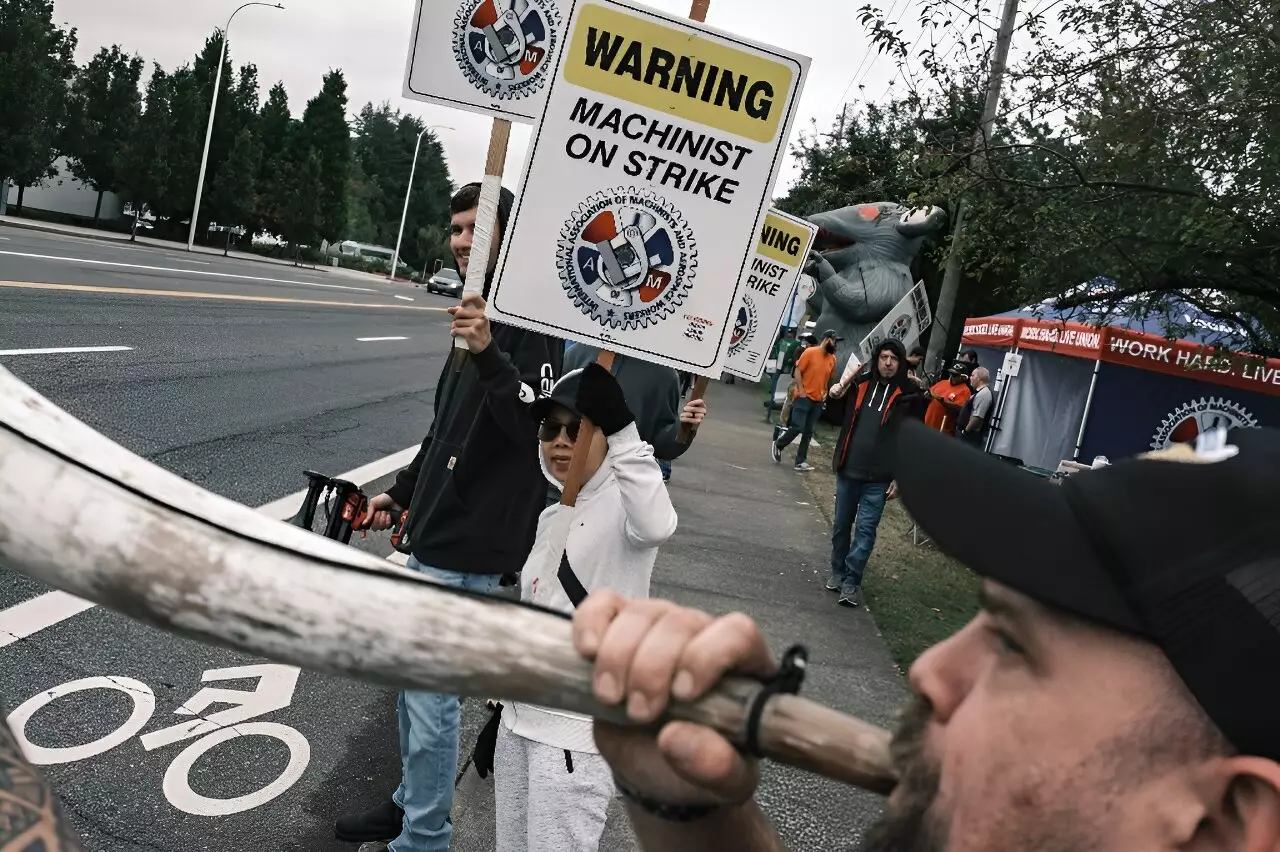In a significant labor dispute, approximately 33,000 workers from Boeing, represented by the International Association of Machinists and Aerospace Workers (IAM), recently initiated a strike that has brought operations in the Pacific Northwest to a standstill. This action followed a decisive vote in which union members rejected a proposed contract on September 13, signaling widespread dissatisfaction with the terms offered by the aviation giant. The strike has effectively halted production lines for the highly anticipated 737 MAX and 777 aircraft, posing challenges not only for Boeing but also for the broader aerospace supply chain.
As negotiations unfolded, the IAM released a somber update, stating that discussions with Boeing had “broken off” without reaching a consensus. The absence of further scheduled talks casts a shadow over the prospects for a swift resolution. IAM leaders emphasized their openness to returning to negotiations, whether directly or through mediation, underscoring the union’s willingness to seek common ground amidst ongoing tensions. Conversely, Boeing has expressed its readiness to engage the union, emphasizing a commitment to establishing a more harmonious relationship with its workforce. The two narratives, however, reflect the widening rift between management and employees.
In an attempt to quell discontent, Boeing presented what it termed its “best and final offer.” This proposal included a 30 percent wage increase and the reinstatement of annual bonuses for the striking workers, a gesture aimed at addressing some of the concerns that fueled the strike. However, the IAM quickly countered that this offer fell short of adequately meeting the demands of its members. The union’s reluctance to accept the proposal indicated that critical issues remained unresolved, particularly regarding pension plans and job security.
Central to the discord is the contentious issue of Boeing’s pension plan, which the IAM has highlighted as a significant point of contention. Despite the negotiations, Boeing’s firm stance on maintaining the freeze on defined benefit plans has escalated frustrations among workers, many of whom view this as a refusal to honor their rights and contributions. The IAM has also called attention to other vital issues such as demands for improved wages, expedited wage progression, and enhanced paid time off, all of which were reportedly not substantively addressed by Boeing during discussions.
The ongoing strike at Boeing represents a crucial juncture not only for the workers involved but also for the company’s future in a competitive aviation market. As both sides prepare for potential future negotiations, the path forward remains uncertain. The IAM’s commitment to advocating for its members’ rights hinges on Boeing’s willingness to reconsider its position on key issues. Ultimately, the outcome of this labor dispute will likely have lasting implications, not only for the negotiating parties but also for the broader landscape of labor relations in the aerospace industry.

